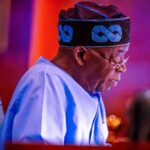The African debt burden requires a revisit if only for us to a) appreciate how African leaders are managing their national economies post the Covid-19 pandemic and b) put in context their demands made at the recent UN general assembly for debt forgiveness.
The pandemic has left in its wake a trail of economic woes and difficulties that constitute new and urgent challenges for each nation. And in the case of African countries weaker and weakened national economies with the obvious prospects of deepening the endemic poverty on the continent and causing social dislocations that could result in inter and intra-ethnic violence and mini-wars. It is not a small challenge for African leaders.
How the prolonged ASUU strike is affecting the North
No countries were prepared for the pandemic and the level of social and economic disruptions it visited on them. Naturally, the ability of each country to cope was in direct proportion to its state of preparedness to cope with such exigencies. African countries were the least prepared for the pandemic. The current challenge facing African leaders is how to revive their devastated economies and help their people cope with the deepening poverty. We may have seen the end of the pandemic but we certainly have not seen the end of its deleterious effect on the continent and its people who are in permanent struggle with life’s basic necessities for survival.
That challenge will lead African leaders further down the only path they have been trudging along all these years – and that path cuts through the jungle of external loans. The majority of African leaders believe in external loans as the solution to their myriads of economic and social problems. That belief is at the root of the easy resort to loans from any and all countries willing to lend them money. There is nothing fundamentally wrong with loans. The global economy runs on loans any way. Rich nations borrow and small nations also borrow. It is said that the only one country in the world that owes no one is the city state of Macau. The rest have happily ignored Shakespeare’s advice, to wit, “neither a lender nor a borrower be…”
The external loan attraction for African leaders has always been irresistible partly because it offers a chance for misuse of the loans and corrupt individual enrichment. The Economic Intelligence Unit, IEU, says that “African countries have been accumulating external debt at a rapid pace over the past decade.” It predicts that “…the financial squeeze created by excessive debt and a heavy debt-servicing burden will weigh on economic growth and stability in a wide range of (African) countries.” It said that “The stock of total external debt held in Africa…. surpassed US1trillion and related annual servicing costs broke through the $100 billion for the first time in …. 2021.”
The African leaders who wear the shoes pinching them, are only too well aware of that. They need no one to tell them that the debt burden is becoming increasingly unbearable and unless they rise to its challenge, each of them will leave office with the legacy they cannot be proud of—a national economy gasping for breath and impoverished citizenry. And so, several of them went to UNGA77 and opened up on their debilitating debt burden and the predictable effects it has on their economic and social development initiatives. They begged their lenders to either cancel the debts or forgive them because “a large chunk of their revenue is usually sunk into debt servicing, leaving little for development and human development.”
Nigeria pleaded; Kenya pleaded; so did Zambia among other African countries that were happy to take and chop other people’s sweet money and now find that it is payback time. President Muhammadu Buhari asked the world body to “…address the burden of unsustainable external debts by a global commitment to the expansion and extension of the debt suspension initiatives to countries facing fiscal and liquidity challenges as well as outright cancellation for countries facing the most severe challenges.”
The president did not say that his own country is in both categories. The Debt Management Office said that Nigeria’s debt stock rose to $103.3 billion in the second quarter. Both external and local loans were taken to finance budget deficits. Debt forgiveness is an emotional weapon routinely employed by debtor-nations to free themselves from carrying out their full obligations. There appears to be a hoary logic inherent in this, to wit, forgive or write off what we owe so we can be free to take fresh loans.
In 2005, President Olusegun Obasanjo succeeded in persuading Nigeria’s creditors to forgive part of its debts and give the country a new lease of economic life as it stepped gingerly into democracy. We thought we would not be taken down that jungle path of unsustainable of debt burden again. But here we are once more pleading to be left off the hook to free needed funds to prosecute development and human capital development. The economy has not fared well under Buhari. Its management has neither been sound nor focused because the economic policies have not given rise to productivity. The country went into recession twice under Buhari’s watch. It is still reeling from the combined effects of the two recessions.
As it is, the prospects are not looking too good for our country. Buhari cannot negotiate our debt forgiveness. His successor as president will bear that burden. Dr Akinwumi Adesina, president of the Africa Development Bank, was quoted as saying at the Nigeria International Economic Partnership Forum in New York last week that “Nigeria needs help to tackle its debt burden which has now crossed the $100 billion mark.” From where will that help come? Through more and more loans, of course. And so the burden will grow heavier, not lighter.
But the Minister of Finance, Zainab Ahmed, said that the country’s problems are not its loans because they are still within the manageable level; rather the problem is the low revenue generation. She has repeatedly made this argument whose logic is a problem for those of us untutored in the intricate ways of financial management. The low revenue creates a gap between what is needed and what is available. A loan, domestic or external, is supposed to bridge that gap with deficit financing, hence the inevitability of borrowing and servicing the loan.
There are two inherent evils in external loans, namely, the economic and social burden it imposes on the debtor-nation and the trap it sets for it to keep borrowing more. I liken this to the prescribed cure for hangover. You drink more to cure yourself of a hanger resulting from the drinks you took yesterday. And then the cure gives you a new hanger over you need to cure with more drinks. It may be simplistic but it still places the finger on why debtor-nations are trapped by their debts that eventually become burdens.




